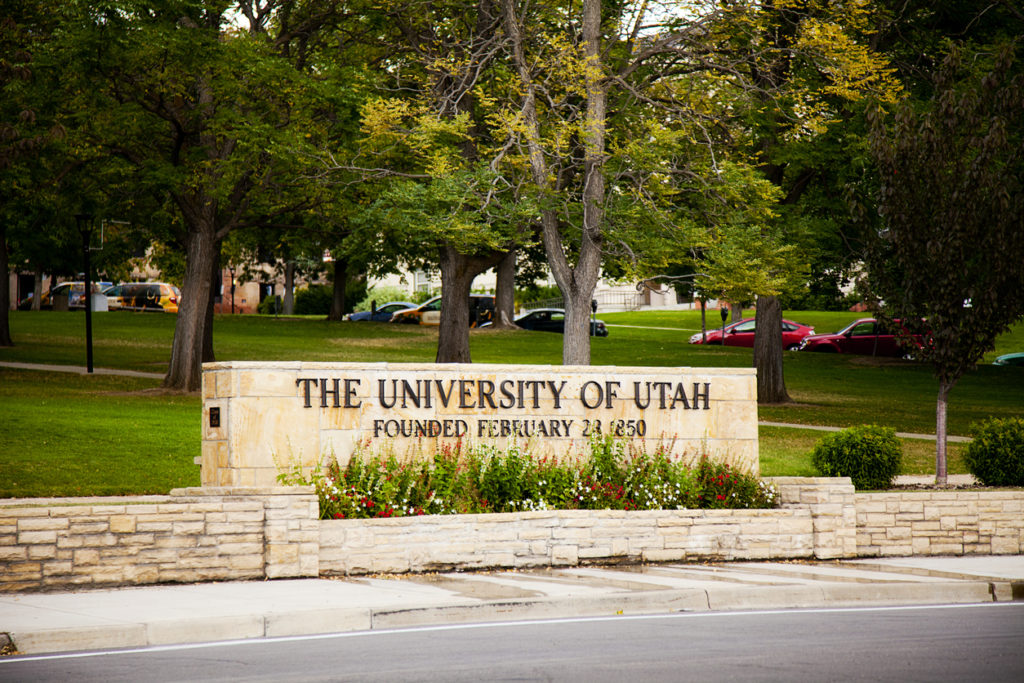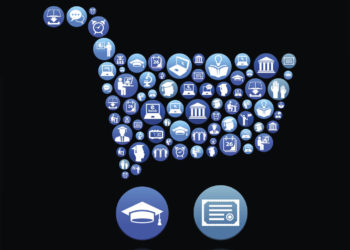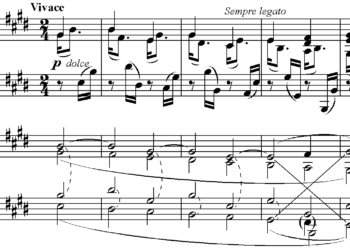Allyson Mower (Head of Scholarly Communication and Copyright in the University of Utah’s J. Willard Marriott Library) recently wrote an article on the history of the University of Utah, demonstrating that some of the commonly-held assumptions about its origins weren’t exactly correct. She submitted it to several journals that deal with Western US history and Mormon history, but all of them turned her down — interestingly, without telling her what was wrong with her research (beyond one of the editors simply saying “one of my colleagues says you’re wrong”). But what’s more interesting is the way she has decided to disseminate her article: instead of turning it into a blog posting or just putting it in the library’s institutional repository, she created a website where she has posted a summary of the paper and invited readers to request a copy. I thought this was a really intriguing approach, so I decided to ask her some questions about it and share our conversation here in the Kitchen.

Give us a quick overview of what your paper is about, and what your findings were.
My paper is about the University of Deseret, which was the original name of the University of Utah. I researched how and why the university was established. The Mormon founders of Salt Lake City had envisioned a national university for a proclaimed nation-state. My paper focused on the unique wording of the charter used to establish the University, the committee involved in drafting the document, and the ideas that motivated the community. I also detailed the University’s early curriculum and its published works and examined the institution in the context of two other similarly-situated colleges in America in order to form a case study.
What do you think was the most interesting finding in your paper?
Essentially, I argued that a religious community didn’t start a religious school but started a secular, research school to support a global, liberal, and theocratic government. The institution matched the political goals of the community that created it. I hadn’t known that the Mormon community had the political goals it did, and I also didn’t know that schools were basically a free-for-all in 1850’s America. Our modern-day schools are heavily regulated, but that was not the case before legislation like the Morrill Act of 1862. Communities started schools based on what they valued and thought would be best for them. The Mormons who started the University of Deseret wanted a practical school before there were practical schools, but they wanted it for very lofty purposes, which is unique, in my opinion.
Why do you think the journals to which you submitted your paper were hesitant to publish it, especially since none of them seems to have criticized the quality of your writing or your research?
The editors that responded (one journal did not respond) indicated that the manuscript did not fit their journals. One journal said the paper lacked sufficient historical context, another said the paper focused too much on the use of the word ‘advance’ that had existed in the founding document, and another said that the thesis was inaccurate according to a colleague (not a reviewer) that the editor shared the paper with. Those were the stated reasons, but it could also be that anything having to do with religion is a challenge. Education can be controversial, too. In Utah, there’s tension between Mormons and non-Mormons and while not all of the journals I submitted to were based in Utah (or about Utah), it could be an element of the rejections. Combining the topics of religion, political ambitions, and education within a historical context made for a complex set of ideas to write about.

Why create a sketch—effectively an expanded abstract—for your paper rather than just putting the paper itself up as a preprint or blog posting?
I wanted to take the toughest and least well-known parts of the history related to my argument and highlight them. I also wanted something visual and easy to understand. I’m hoping this will entice someone to want to read more! Not just my manuscript, but the primary sources, too.
In terms of scholarly communication, what has your experience been submitting to journals not in your primary discipline?
I learned, in a real way, the role journal editors play in maintaining both the brand of their journal and the scholarly record represented by the journal. I had significantly revised the paper after one editor had suggested that I read additional literature in the history of education. I had appreciated the editor mentoring me as an author who was outside the discipline, but, in the end, the editor still deemed the paper to not fit the scope of the journal. The journal had published papers about schools in the West before (it’s actually a specialty area for the editor) and there was enough interest in the topic of a school in the American West started by a religious group for political purposes to have the editor present additional readings and suggest a new structure, but accepting a paper written by a discipline outsider to the record seemed to go beyond what the editor saw as appropriate for the journal’s brand and readers.
As a scholarly communication librarian, it was valuable for me to gain a deeper understanding of the fact that editors know their readers because they themselves are active in the discipline. They attend conferences with their readers, know what institutions they’re from, and have a good sense of who’s working on what topic in the field. I don’t think scholarly journal editors look for content from any kind of writer as a way to expand their journal readership and sell more subscriptions or content. They look for content from writers who will attract their existing audience and hold them as readers. And for scholarly journal editors, that would have to be limited to fellow academics in the field. I can imagine an editor asking herself, “This author probably won’t continue to research within the discipline so is the topic interesting and substantial enough for me to introduce my journal’s readers to an unknown author?” That has to be a central question that editors grapple with in their day-to-day duties. I can see the importance of having someone function in that capacity.
Were there available publishing options that you rejected in favor of disseminating your paper this way?
Yes, I could have published it in our institutional repository, which is a wonderful collection of original research. I could have also posted it to Humanities Commons. I might go with either of these options in the future, but I wanted to start with the sketch. The sketch allowed me to place images and text side-by-side to help build the story. It also made it easy for me to select the most relevant portions and to keep it brief. Plus I could continue to add to the sketch in my own way in order to keep the content relevant. In addition, the sketch sits alongside my descriptive bibliography of university research in order to help provide more background on the university.
If someone requests a copy of your paper, under what license (if any) will you make it available to them? And why?
I would reserve all my rights at this point because I haven’t determined the final, future home for the manuscript and what publishing terms I might be presented with.
Do you anticipate submitting this piece to any additional journals, or do you expect that this will be the way in which you disseminate this paper for good?
This will most likely be the way in which I disseminate this paper, but I would still like to keep my options open such as presenting at a discipline conference. I wanted to get the ideas out there and I like that I was able to do so in context of my other original research and discipline. I also appreciated that the academic library where I work provided this type of publishing support and that my institution’s faculty employment policies allowed for this level of publishing flexibility.
Is this something you’d anticipate doing again in the future (or is it too soon to say)?
I think it’s too soon to say. This approach came out of necessity. Hopefully I won’t need to get creative in the same way with future publications.
Discussion
6 Thoughts on "One Author’s Novel Approach to Article Self-Publishing: An Interview with Allyson Mower"
Although SK should cover a wide rage of opinions and articles, this is just encouraging anyone wanting to dessiminate fake news or false information in a similar way. Authors have many options already available to them where they can receive constructive feedback and comment as well as advice on further enhancements & revisions (preprints for one). If every rejected author published/disseminated their rejected work in this way we are likely to be inundated with innacurate and poorly conducted studies with incorrect or false conclusions. Peer review is, and should remain the cornerstone of academic publishing. (In case anyone thinks i am saying this as i am from a commercial publisher, i work for a non-profit).
As an alumnus of the University of Utah, this paper might pique my interest. However, this publication approach does not. Why not just post the PDF and track downloads? Why to I have to email her to get the paper? You can post PDFs on WordPress blogs, so I don’t understand the value of putting an email requirement. Is she creating a database of names? Is she GDPR-compliant?
Personally, I’m not emailing her to get a copy because I would prefer my reading occur without having to divulge my email address to an individual I don’t know, even though I’m sure she’s perfectly nice. (I’m fine divulging it to a company or NPO with infrastructure and legal liability, I’ll note, but to just some author with a quick and dirty blog page? Nope.)
One reason not to host the manuscript online goes back to her wanting to keep her options open and not having found a final home for the article. Depending on the submission requirements, this form of publishing (or as she calls it “sharing”) might not eliminate it from being considered for publication by other journals.
Amber is correct. My goal is to have research-based conversations with others who investigate similar areas and this approach could be a way to facilitate that exchange. In fact, a fellow researcher has already reached out. In this situation, I value scholarly conversation over impersonal metrics such as downloads.
I would encourage Ms. Mower to keep trying peer-reviewed journals, so that her work is taken more seriously and gets a wider audience. But I think her story is also a warning to academic editors. While journals legitimately have a range of topics they cover, the basis of a decision for an article should be the quality of the research and the argument, not the personal status or title of the author.
I am both an academic editor and a scholar. It took me several years to find a journal to publish a quantitative history manuscript I co-authored, and the rejections (often even without external review) were that it didn’t “fit” their field. The history journals told me it was sociology because it’s quantitative, but the quantitative social science journals told me it was history because it’s about cultural economy before 1950. I eventually found a quantitative journal to seriously consider it and received very positive reviews with constructive revision requirements, but it shouldn’t have taken two years (it’s in press now).
There are several factors that make it more imperative than ever that reputable academic journals conduct peer reviews on the merits of each manuscript (without bias to the academic status of the authors). Online submission allows more and more people to submit manuscripts, so there are manuscripts from many unanticipated places and people–some of which are quite good. Search engines also allow people to find articles in journals they would never otherwise read, so journals are not just speaking to their traditional audience anymore. That traditional audience is perhaps better thought of as a core audience; it’s certainly not an exclusive audience anymore. The #MeToo movement and other sources are exposing the many biases, both within and outside academia, on the basis of gender, ethnicity, religion, etc. (e.g., https://www.chronicle.com/article/All-Things-Ill-Considered-/243865). Academic editors should be actively working to ensure these biases are not allowed in peer review–contrary to SK’s example of the editor who rejected the article because an unnamed colleague, who was not an official reviewer, said the conclusion is “wrong.” Did that colleague even read the manuscript, or was this coffee break talk? Ms. Mower attributes the bias to her being outside a particular discipline, but I wonder how much it had to do with her title being “librarian,” not “professor.”
Academic publishing is already having difficulties. If peer review is biased by personal status, nothing distinguishes academic publishing from other elitist networks and there will be no saving it.
Thank you for this perspective, Melissa! It’s useful to hear about similar scholarly publishing experiences from an author’s vantage point, but also very helpful to hear how potential biases could color the decision-making process of academic editors. I hadn’t considered my title of librarian being an additional factor.



